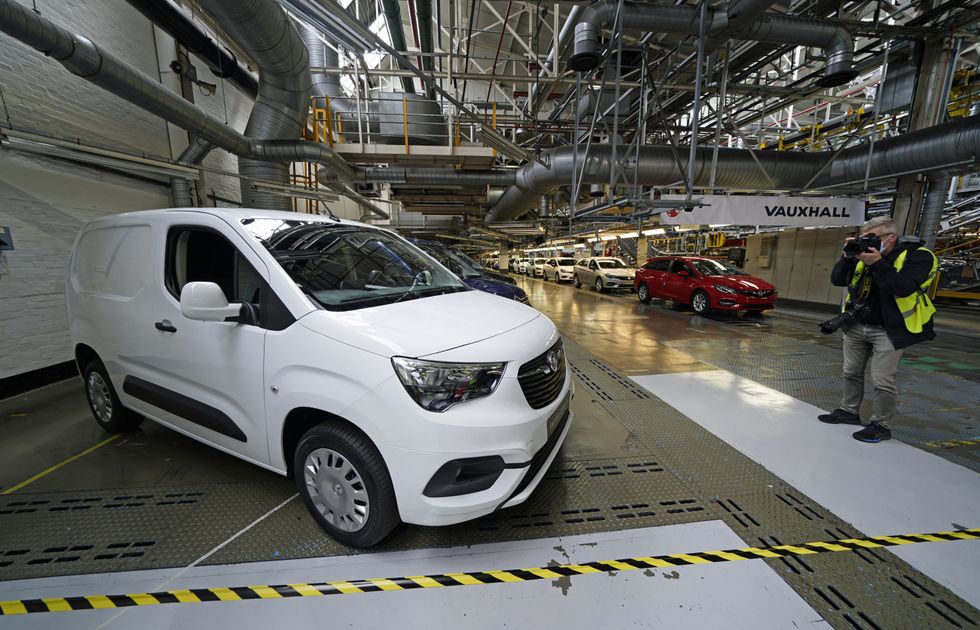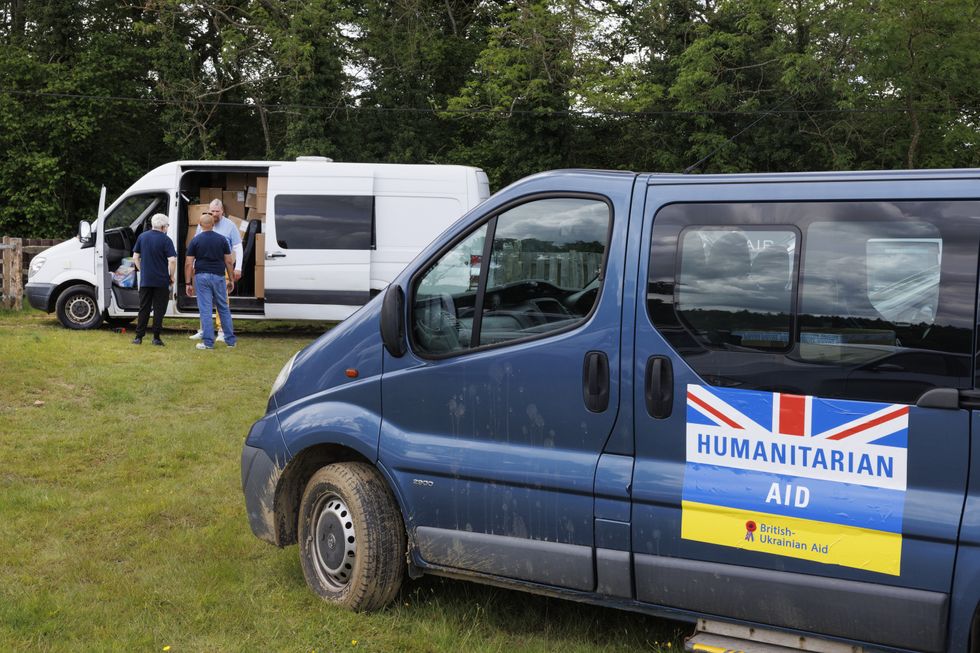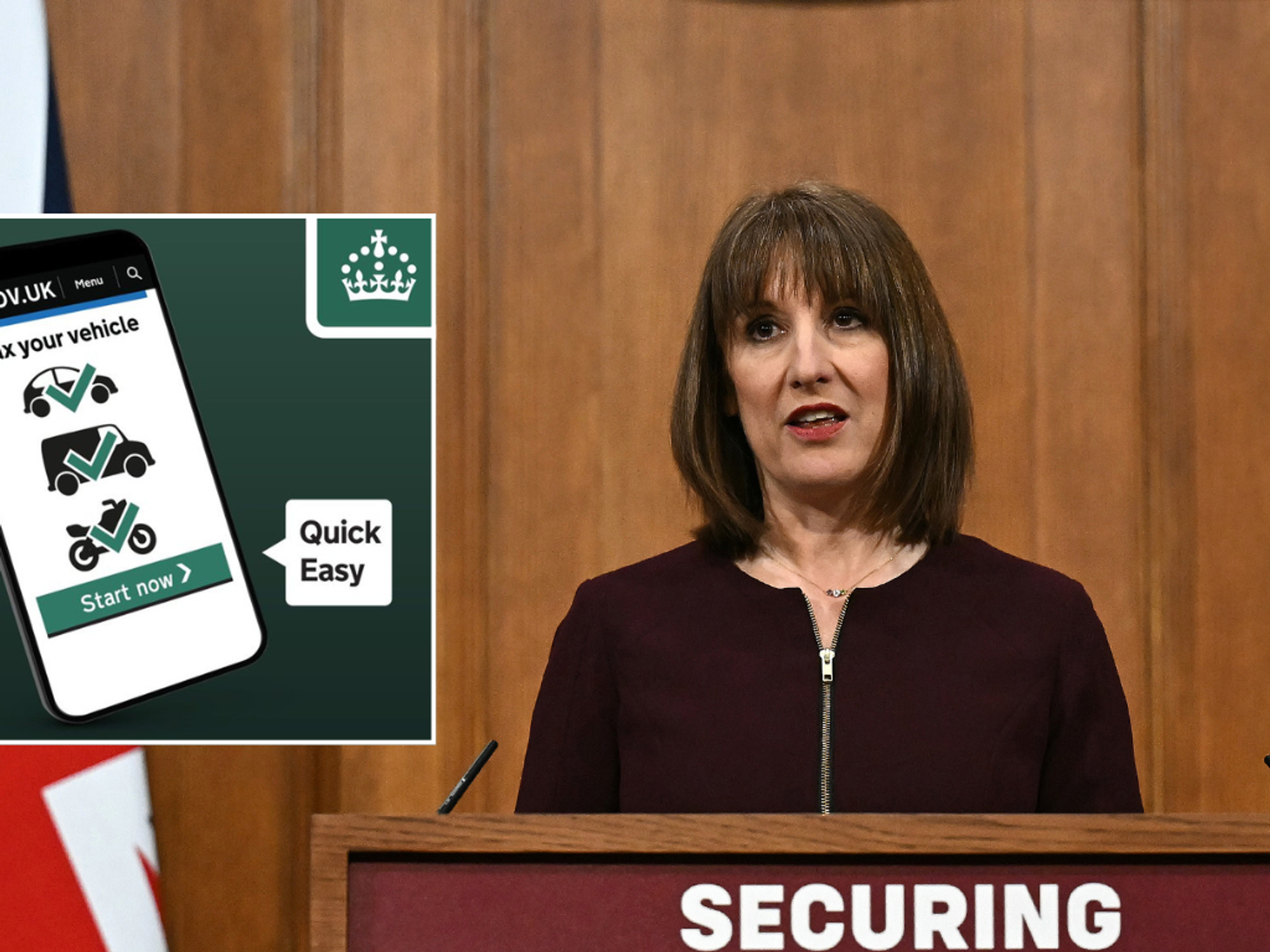Mayor Sadiq Khan opened the Ulez scrappage scheme to all Londoners in August 2023
PA
Only 374 petrol and diesel vans were replaced with electric models
Don't Miss
Most Read
Trending on GB News
New data has found that just two per cent of polluting petrol and diesel vans have been replaced by electric vehicles through the Ultra Low Emission Zone scrappage scheme.
Between January 2023 and May 2024, 16,207 applications were made to scrap a petrol or diesel van as part of the Ulez scrappage scheme.
Despite this, the Transport for London data shows that only 374 were replaced with an electric vehicle.
The Ulez van and minibus scrappage scheme remains open to small businesses with less than 50 employees, micro businesses with up to 10 employees, sole traders and registered charities.
Do you have a story you'd like to share? Get in touch by emailingmotoring@gbnews.uk

Drivers could get £9,500 if they scrap and replace their vans with an electric model
PAAny organisations looking to make use of the scrappage scheme must operate within the 32 boroughs of London or the City of London.
If they do decide to use the scrappage scheme, they could receive a grant payment of £6,000 to retrofit a van or minivan, £7,000 to scrap a van and £9,000 to scrap a minibus.
If they wish to scrap or donate their vehicles and replace them with an electric model, they could receive £9,500 for a van or £11,500 for a minibus.
The options available for drivers interested in removing their petrol or diesel vans include scrapping or donating them, as well as a limited number of retrofit measures.
Businesses can only apply for a grant payment through TfL if the vehicle does not meet the minimum emissions standards set out as part of the Ulez.
As of March, drivers can also choose to send their vehicles to Ukraine as part of a new scheme to support humanitarian and medical needs through the British-Ukrainian Aid charity.
Campaign group Transport and Environment said the data was clear evidence that more needed to be done to boost the number of electric vans on the road.
Ralph Palmer, from Transport and Environment, said: "The continued rise in van emissions in the UK is alarming.
"Despite the push for more electric vans on our roads, we are still witnessing a surge in greenhouse gas emissions from vans as a result of sustained sales of diesel vans, countering trends we are seeing in the car market.
"It’s clear that more action is needed to boost electric van demand among fleets to ensure we achieve the triple win of tackling emissions, reducing running costs for small businesses and boosting energy security," he told the BBC.
He also suggested that the UK Government could follow the lead of the Netherlands and set up a number of "zero emissions logistics zones" to boost the number of electric vans and e-cargo bikes.
From January 1, 2025, municipalities in the Netherlands will be able to introduce designated urban areas where no polluting vans or trucks are allowed to drive.
LATEST DEVELOPMENTS:
- Bentley's new £236,000 Continental GT is the 'fastest underwater vehicle ever' with a top speed of 208mph
- M25 closed: Drivers face hours of delays amid 'complex recovery' following huge lorry crash on major motorway
- Volkswagen invest $5billion in electric vehicle rival Rivian despite falling demand from motorists
 More than 100 scrapped vehicles have already been sent to Ukraine
More than 100 scrapped vehicles have already been sent to Ukraine Nick Turpin/TFL/PA Wire
Around 30 cities are expected to have these rules in place at the beginning of 2025 with plans to almost entirely phase out polluting delivery vans out by the end of the decade.
A spokesperson for the mayor of London told the BBC: “Since the introduction of the scrappage scheme, more than 52,000 grants have been approved for Londoners, businesses and charities to switch to cleaner vehicles, with more than £178million committed."








